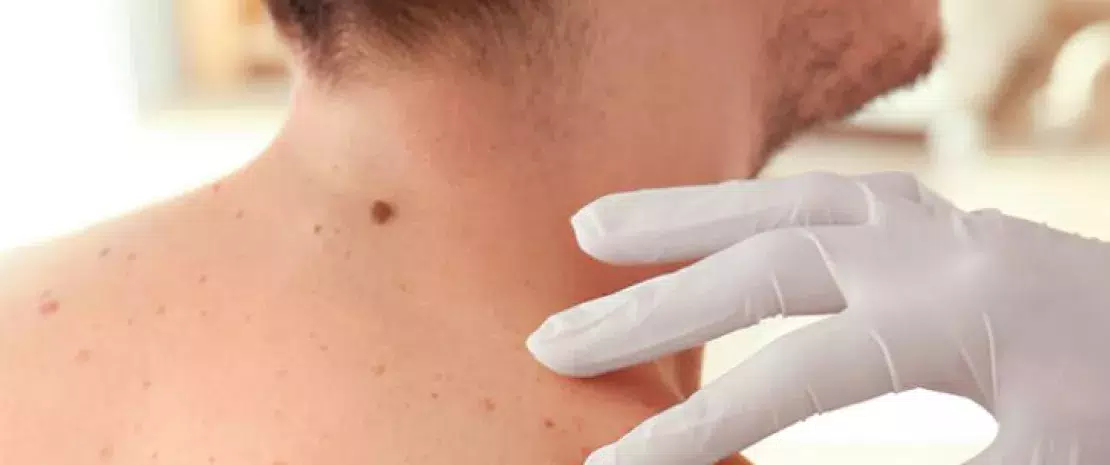Gut Microbiota # 16
By Pr. Satu Pekkala
Academy of Finland Research Fellow, Faculty of Sport and Health Sciences, University of Jyväskylä, Finland
Lay public section
Find here your dedicated section
Sources
This article is based on scientific information
Sections

About this article
CROSS-COHORT GUT MICROBIOME ASSOCIATIONS WITH IMMUNE CHECKPOINT INHIBITOR RESPONSE IN ADVANCED MELANOMA
Immune checkpoint inhibitors (ICIs) have significantly improved the treatment of advanced melanoma. However, not all patients respond to the treatment, which has been thought to be linked to the gut microbiota. Lee et al. performed metagenome shotgun sequencing of fecal samples from five European ICI-naïve cohorts, with a total of 165 advanced cutaneous melanoma patients. Due to clinical and mutational differences between the cohorts, they were analyzed separately and not pooled. The authors found a significant difference in the gut microbiota composition between responders and non-responders in the PRIMM-UK cohort, but not in the PRIMM-Netherland (NL) cohort. Further, by analyzing publicly available databases (n = 147 metagenomic samples), it became evident that there was limited reproducibility of response predictions across cohorts. No single bacterium was an entirely constant biomarker of response to ICIs across all datasets. However, a panel of microbial species, including Bifidobacterium pseudocatenulatum, Roseburia spp. and Akkermansia muciniphila, was identified in the study associated with responders. Regarding the functional genes of the microbiota, e.g., DNA adenine methylases were increased in the responders. In conclusion, though a potential panel of microbial biomarkers showing the responsiveness to ICI treatment was identified, future studies in larger cohorts are needed. In addition, several clinical factors should be considered as confounding when evaluating the biomarkers that may be useful in diagnostics
INTESTINAL AKKERMANSIA MUCINIPHILA PREDICTS CLINICAL RESPONSE TO PD-1 BLOCKADE IN PATIENTS WITH ADVANCED NON-SMALL-CELL LUNG CANCER
Many patients with non-small-cell lung cancer (NSCLC) do not respond to the treatment with immune checkpoint inhibitors (ICIs), such as anti-PD-1. Recent evidence shows that certain members of the gut microbiota, especially Akkermansia muciniphila, can influence the efficacy of ICIs in patients with NSCLC. In addition, the treatment resistance has been associated with lower inflammatory tumor microenvironment. Derosa et al. prospective, multicentric study included 338 patients with advanced NSCLC treated with ICIs to determine whether the gut microbiota metagenome profiles could explain the treatment response. They show that higher Akkermansia abundance in the baseline feces was associated with higher response rate to the ICI treatment, associated with clinical benefit (increase in survival). In addition, the presence of Akkermansia associated with other potentially prognosis- relevant shifts in the gut microbiota. Several differentially expressed tumor genes were linked to the response to PD-1 blockade suggesting that Akkermansia could promote migration of T helper cells to the tumor microenvironment. To ultimately show that Akkermansia could rescue the ICI resistance, the authors inoculated two different strains of A. muciniphila to mice that were previously transplanted with feces of a patient with resistance to PD-1 blockade. Compared to the control mice, the two strains rescued the treatment response. By far, this study is the largest metagenomics prospective analysis that has validated Akkermansia as a potential prognostic factor for ICI-treated NSCLC patients and showed the mechanistic potential of Akkermansia.
FAECAL MICROBIOTA TRANSPLANTATION FOR BIPOLAR DISORDER: A DETAILED CASE STUDY
The only validated indication for FMT is recurrent Clostridioides difficile infection, However, the involvement of gut microbiota in numerous other diseases (Parkinson disease for example) suggests that indications for FMT could soon be expanded.Gut microbiota can also modify numerous depression-associated processes, such as hypothalamic- pituitary-adrenal gland axis. So far, there are no published trials using FMT to treat patients with bipolar conditions. The longitudinal study by Parker et al. presents the case of a 28-year-old male with bipolar disorder. At the age of 10, he developed depressive episodes. Symptoms included a severely depressed mood, suicidal thoughts, anergia, impaired concentration, psychomotor retardation, and insomnia. The symptoms were commonly associated with irritability and anxiety. At the age of 15, he developed his first hypomanic episode. For years, he was successfully treated with drugs, but then mood problems occurred again. He voluntarily started taking probiotics (strains of Lactobacillus and Saccharomyces. After the probiotics, he self-reported a huge relief of symptoms. Encouraged by the improvements, the patient read on microbiome research and elected to trial FMT. This procedure was performed via colonoscopy by a gastroenterologist. After the FMT, he charted his mood states for 470 consecutive days. He self-reported that mood episodes decreased in frequency and severity over the months. He was also able to reduce the drug treatment significantly. Twelve months after FMT, he stated having distinct highs, virtually no bipolar symptoms, and attention deficit hyperactivity disorder symptoms had improved. Though this is only a case study, FMT was able to reduce the bipolar symptoms, thus warranting the need for FMT studies in larger bipolar cohorts.






